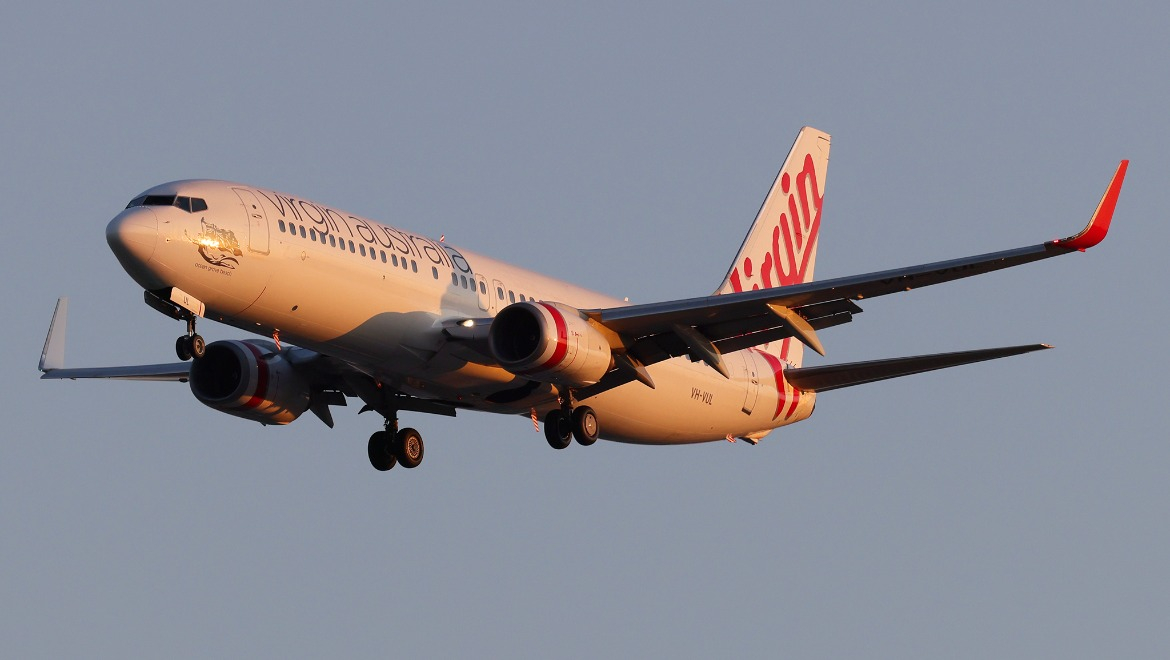
Virgin Australia on Sunday declared it had returned to real profitability for the first time since its damaging ‘capacity wars’ battle with Qantas a decade ago.
The business said it had achieved the remarkable turnaround by removing $300 million worth of costs and re-contracting more than 450 corporate accounts.
It comes after the airline reported an underlying loss of $386.7 million in the last financial year as it grappled with lockdowns. While it technically delivered a $3.7 billion after-tax profit for the year ending June 2021, that largely came off the back of the $4.4 billion in creditors’ claims that were extinguished by its administrators.
Chief executive Jayne Hrdlicka said, “Confidence in our business strength and operation is at an all-time high.
“We have a strong balance sheet, some of the best management in the industry working on our ongoing business transformation, and we’re well advanced in returning to profitability this financial year.
“We’ve only just touched the tip of the iceberg in what’s possible, and there’s so much energy right across Virgin Australia to make sure we are doing our best to leave a positive difference every time our guests fly with us.”
Virgin Australia entered administration in 2020 after years of trying to shift itself from a low-cost carrier to a full-service offering capable of taking on Qantas.
COVID-19 saw the business finally enter administration before Bain beat out Cyrus Capital Partners to purchase the company in 2020.
The deal included cutting axing 3,000 roles, scraping the Tigerair brand and initially downsizing the business’ 737 fleet from 85 to 56, as well as removing all other aircraft models. It recorded a staggering $3.1 billion loss during its last financial year before the takeover.
However, with pandemic restrictions now largely removed, domestic aviation has rebounded to near pre-pandemic passenger numbers, peaking at 97 per cent in June.
The recovery gave Virgin the confidence to announce in August it would acquire another four MAX 8s to take its total domestic fleet to 92 Boeing 737 aircraft.
It marked a significant increase from its original intention of having just 58 aircraft when it emerged from administration.
Virgin’s fightback follows Qantas this month also declaring it had completed a turnaround that will see it target an underlying profit before tax of up to $1.3 billion in the first half of the current financial year.
The result came despite the wider group recording an underlying loss before tax of $1.86 billion in its last full-year results and claiming the pandemic cost its airlines $7 billion in total.
As with Virgin, Qantas appears to be taking advantage of pent-up demand for domestic travel, and now believes its revenue for leisure travel is at more than 130 per cent of pre-pandemic levels.
Rex’s chairman, meanwhile, said he was “mildly pleased” at his business’ full-year performance, despite recording a loss before tax of $68 million.
Lim Kim Hai said the lingering impact of the pandemic meant the airline’s recovery didn’t begin until February 2020.
“Prior to that, both the domestic jet operations and regional Saab operations were either suspended or greatly reduced,” he said.
The business’ results for FY22 saw revenue hit $319 million, including COVID-19 grants of $32 million. This was though significantly lower than the $87 million in help it received in FY21.















